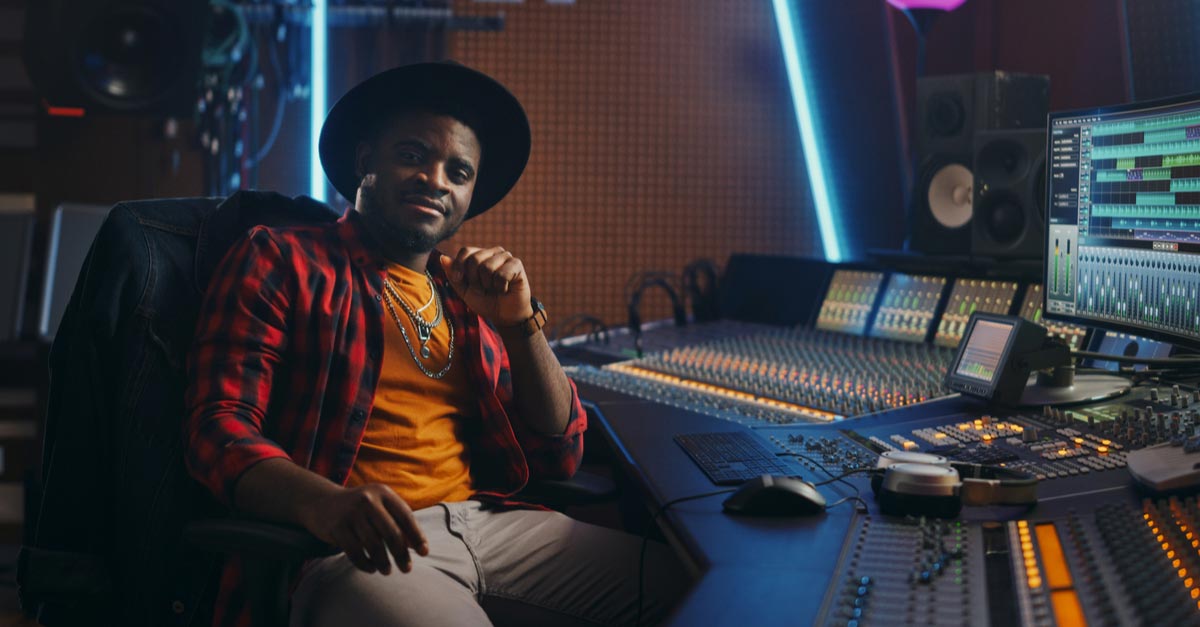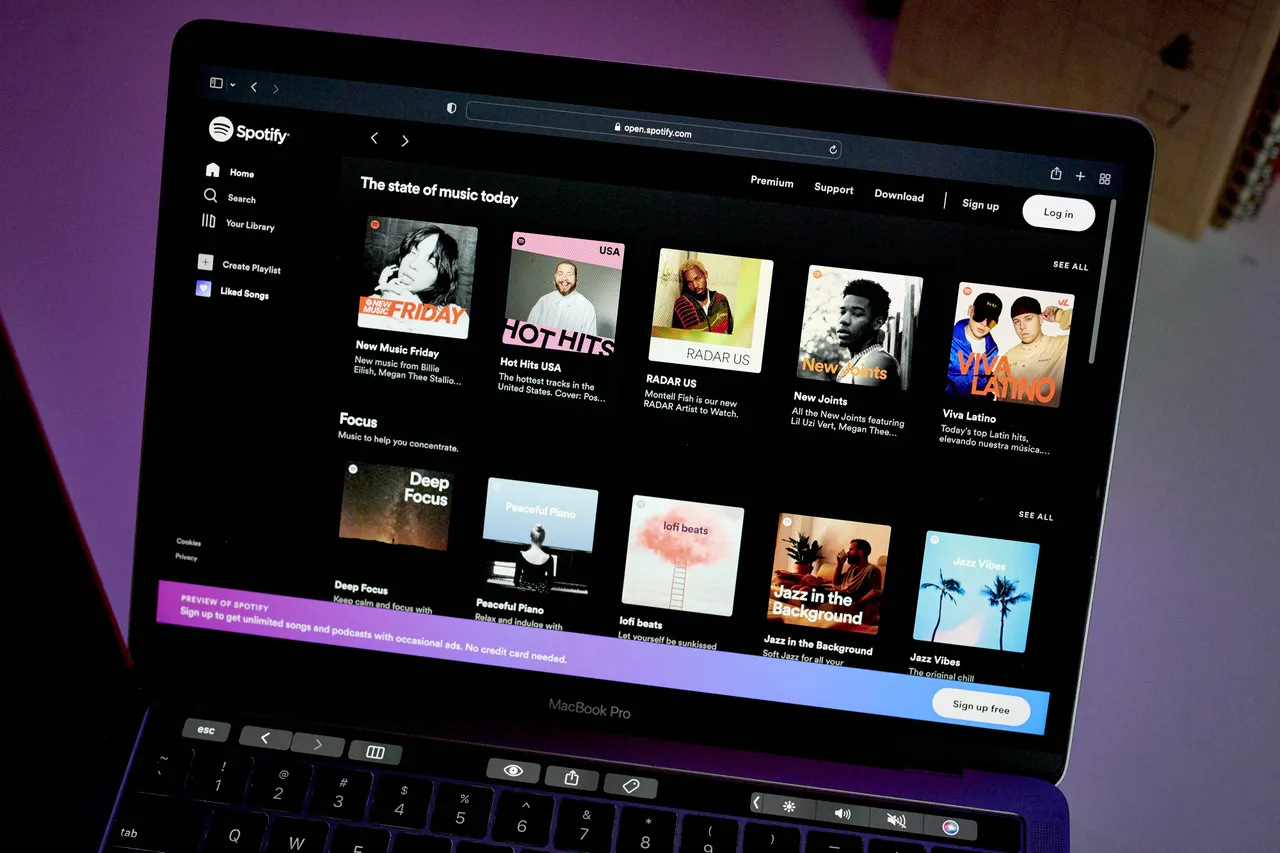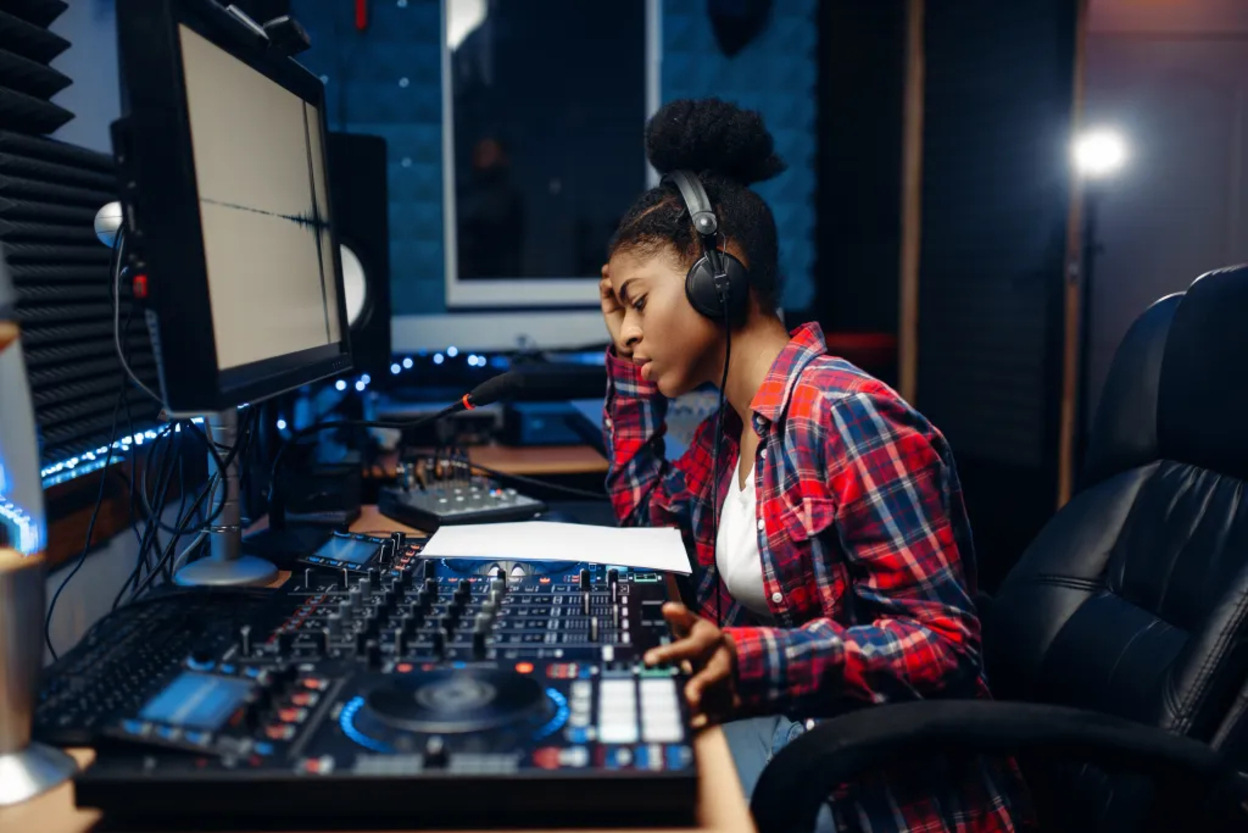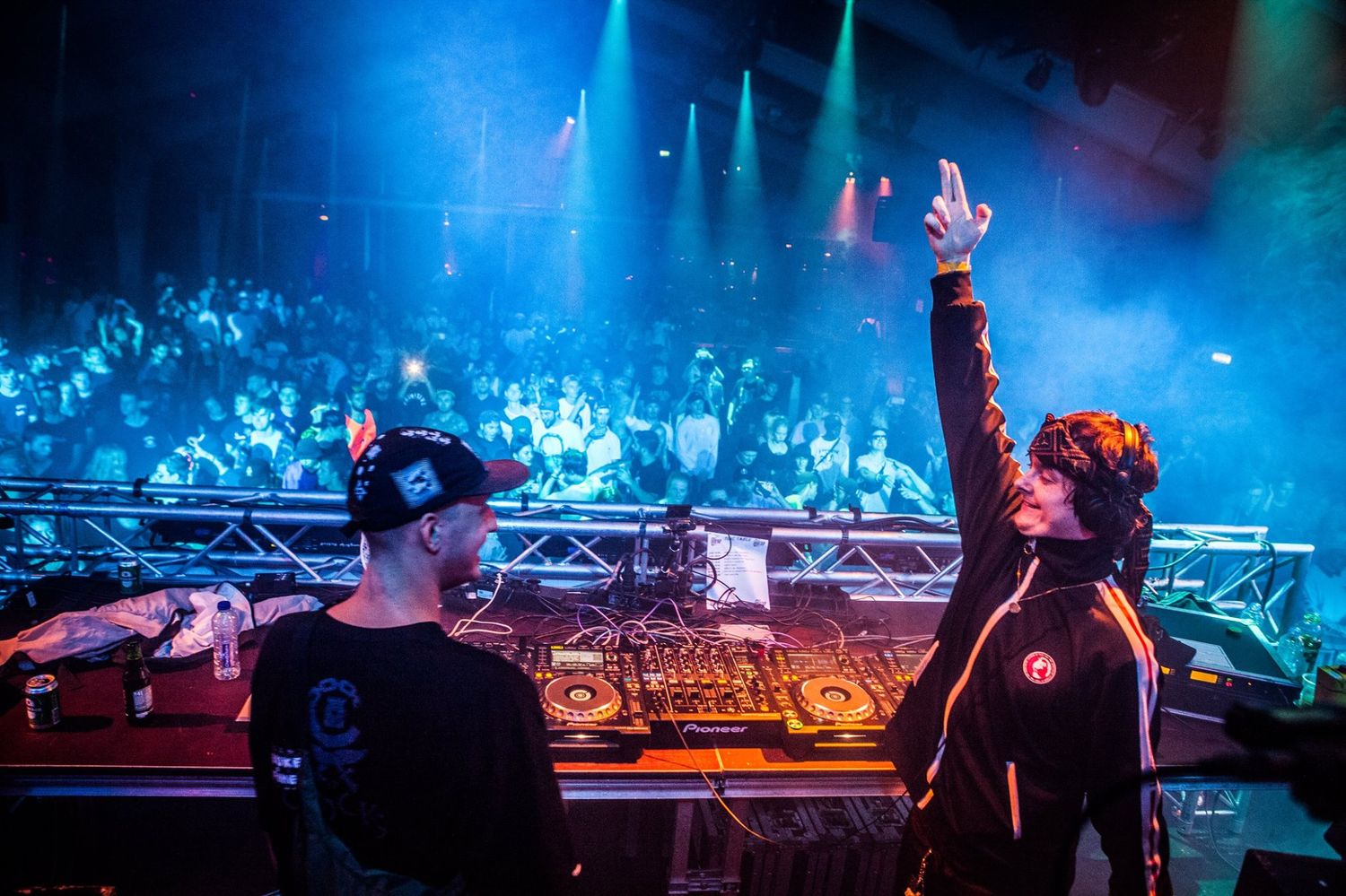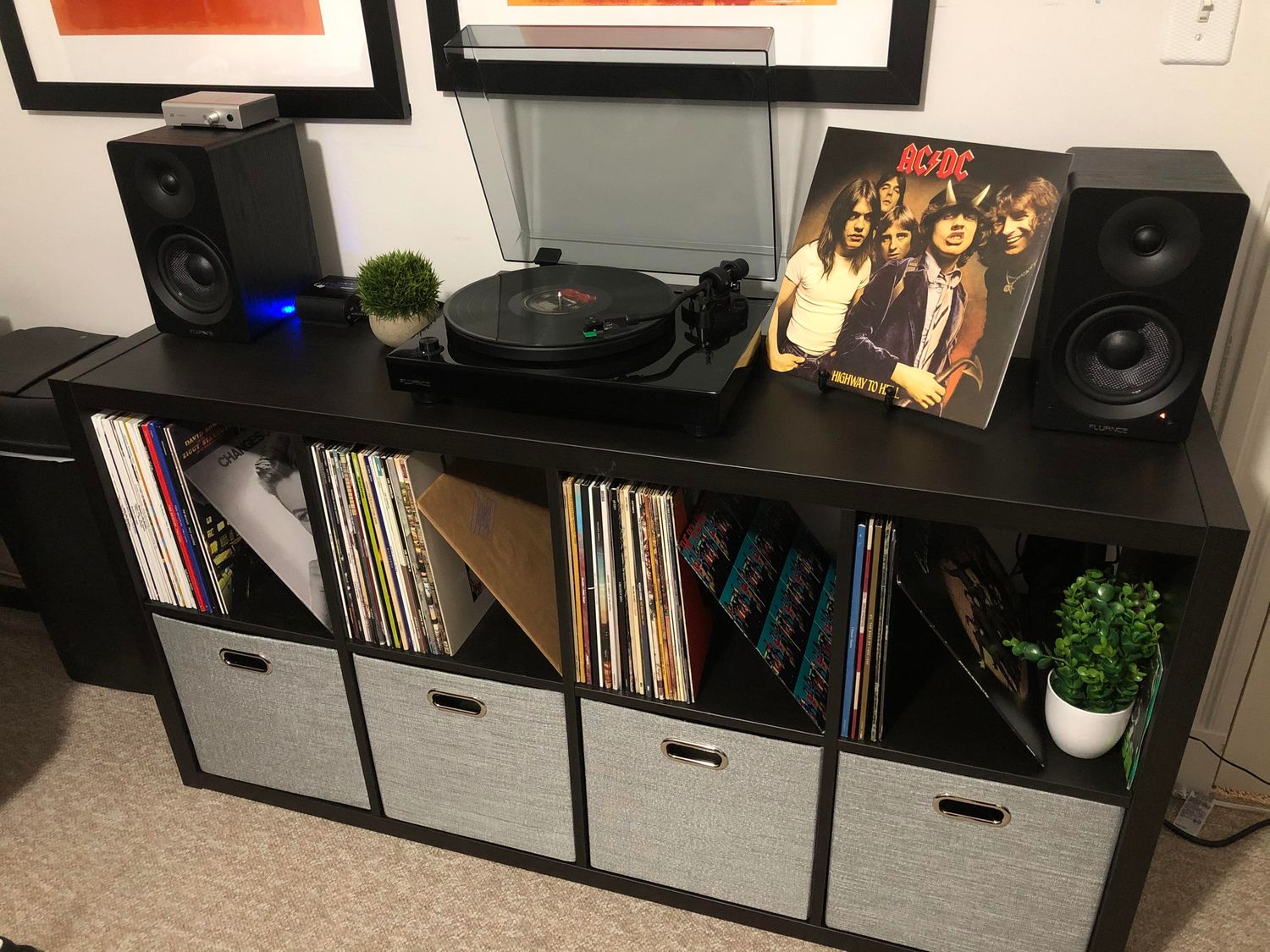Home>Production & Technology>Producer>What Degree Do I Need To Be A Music Producer
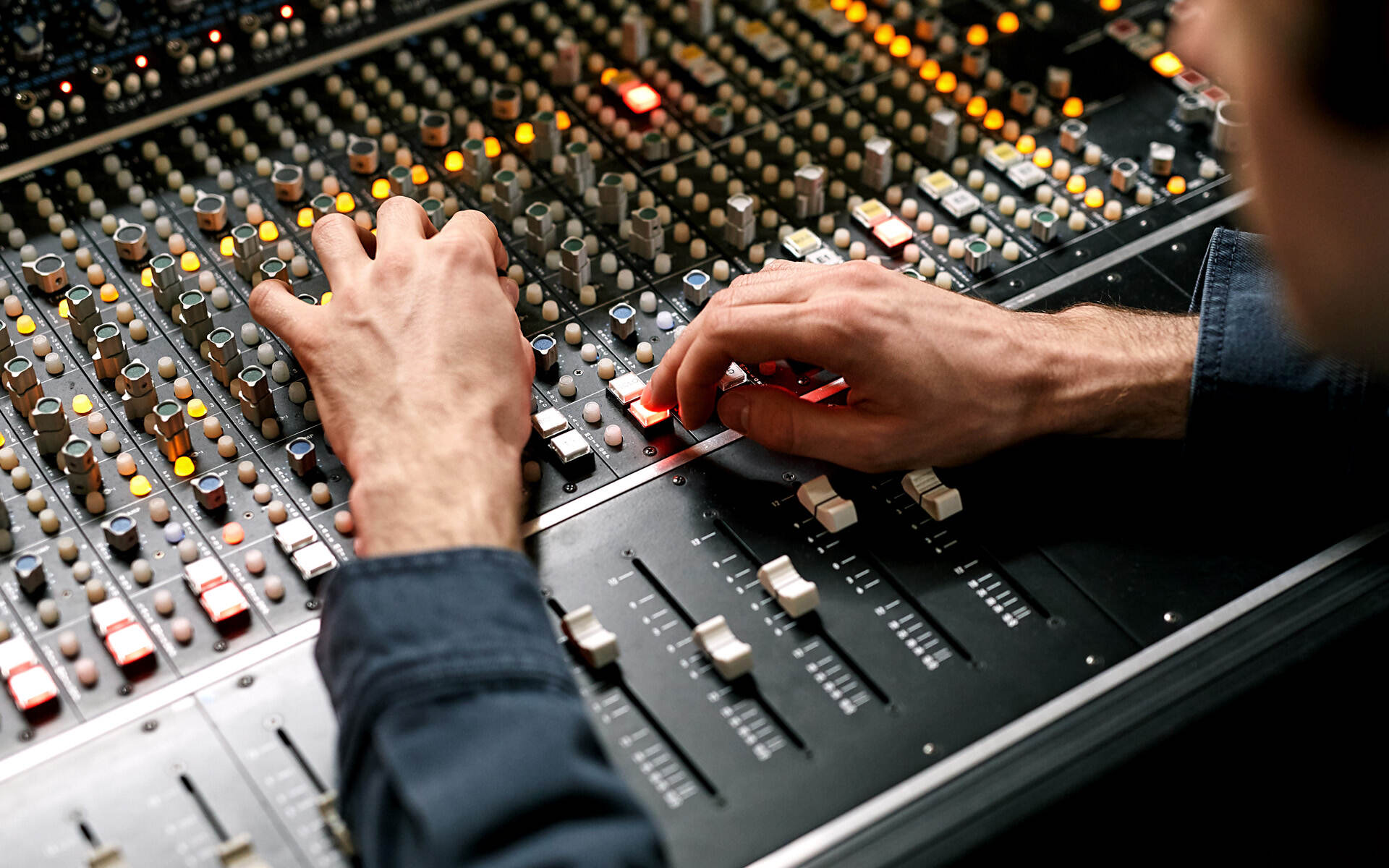

Producer
What Degree Do I Need To Be A Music Producer
Published: March 6, 2024
Discover the essential degree requirements to become a successful music producer. Learn how to kickstart your career in music production.
(Many of the links in this article redirect to a specific reviewed product. Your purchase of these products through affiliate links helps to generate commission for AudioLover.com, at no extra cost. Learn more)
Table of Contents
Introduction
Becoming a music producer is a dream for many music enthusiasts who are passionate about creating and shaping the sounds that captivate audiences. It's a career that offers the opportunity to work with talented artists, craft compelling melodies, and contribute to the creation of timeless musical pieces. However, aspiring music producers often wonder about the educational path they need to pursue in order to achieve their goals.
The journey to becoming a successful music producer involves a blend of creativity, technical skills, and industry knowledge. While there is no singular, rigid educational requirement for entering this field, obtaining a relevant degree or pursuing specialized training can significantly enhance one's prospects and capabilities.
In this article, we will explore the various educational paths and training options available for individuals aspiring to become music producers. Whether you are a high school student contemplating your future career or a seasoned musician looking to transition into music production, understanding the educational landscape is crucial for making informed decisions and charting a successful career path in the music industry. Let's delve into the diverse educational and training opportunities that can pave the way for a fulfilling career as a music producer.
Education and Training
Education and training are pivotal components in the journey to becoming a proficient music producer. While there isn't a one-size-fits-all educational path, acquiring a solid foundation in music theory, audio engineering, and production techniques is essential.
One common route for aspiring music producers is to pursue a degree in music production, audio engineering, or a related field. These programs typically offer a comprehensive curriculum that covers music composition, sound design, mixing and mastering, and studio recording techniques. Additionally, students gain hands-on experience with industry-standard software and hardware, equipping them with the technical proficiency needed to excel in the field.
Another valuable aspect of formal education in music production is the opportunity to collaborate with peers and industry professionals. This collaborative environment fosters creativity, exposes students to diverse musical styles, and provides networking opportunities that can be instrumental in launching a successful career.
In addition to degree programs, aspiring music producers can benefit from specialized training and certification courses. These shorter, more focused programs often cater to specific aspects of music production, such as beat making, electronic music production, or audio post-production for film and television. While not as comprehensive as a full degree program, these courses can provide targeted skill development and industry-relevant knowledge.
Furthermore, self-directed learning through online resources, tutorials, and mentorship can supplement formal education and training. Many successful music producers have honed their craft through a combination of formal education, self-study, and real-world experience.
Ultimately, the ideal educational path for aspiring music producers depends on their individual goals, learning style, and resources. While a formal degree can provide a structured and immersive learning experience, it's not the only pathway to success in the music production industry. The key is to acquire a deep understanding of music production techniques, develop a discerning ear for sound, and stay abreast of industry trends and technological advancements.
By investing in education and training that aligns with their aspirations, aspiring music producers can cultivate the skills and knowledge necessary to thrive in this dynamic and competitive field. Whether through formal education, specialized training, or a combination of both, the journey to becoming a proficient music producer is a rewarding pursuit that blends artistic expression with technical expertise.
Music Production Degree Programs
Pursuing a music production degree program can provide aspiring producers with a structured and immersive learning experience that encompasses essential aspects of music theory, audio engineering, and production techniques. These programs are designed to equip students with the technical skills, creative acumen, and industry knowledge needed to excel in the dynamic field of music production.
One of the key advantages of enrolling in a music production degree program is the comprehensive curriculum that covers a wide range of topics relevant to the industry. Students delve into music composition, arrangement, sound design, mixing and mastering, and studio recording techniques. Additionally, they gain hands-on experience with industry-standard software and hardware, allowing them to develop a deep understanding of the tools and technologies used in modern music production.
Moreover, the collaborative environment in degree programs fosters creativity and provides students with opportunities to work on projects with peers and industry professionals. This collaborative approach not only exposes students to diverse musical styles but also helps them build a network of contacts within the industry, which can be invaluable for future career opportunities.
Furthermore, music production degree programs often offer specialized courses that cater to specific genres or aspects of production, allowing students to tailor their learning experience to align with their interests and career goals. Whether it's electronic music production, film scoring, or live sound engineering, these specialized courses provide in-depth knowledge and practical skills in niche areas of music production.
In addition to the technical and creative aspects, music production degree programs also emphasize the business and entrepreneurial side of the industry. Students learn about music copyright laws, music publishing, marketing strategies, and the overall business ecosystem of the music industry. This holistic approach equips graduates with the knowledge and skills to navigate the complexities of the music business and pursue entrepreneurial opportunities in music production.
Ultimately, enrolling in a music production degree program can provide aspiring producers with a well-rounded education that combines artistic expression with technical proficiency and industry insight. By immersing themselves in a structured learning environment, students can develop the skills, knowledge, and network necessary to embark on a successful career in music production. Whether it's through a traditional four-year degree program or a specialized music production institute, the educational foundation gained from these programs can serve as a springboard for aspiring music producers to realize their creative and professional aspirations.
Alternative Paths to Becoming a Music Producer
While pursuing a formal degree in music production is a common and valuable path, there are alternative routes that aspiring music producers can explore to gain the necessary skills and knowledge to thrive in the industry. These alternative paths cater to individuals who may have different learning preferences, financial constraints, or a desire for a more flexible and self-directed approach to education and training.
One alternative path to becoming a music producer involves seeking mentorship and hands-on experience within the industry. This approach entails connecting with experienced music producers, audio engineers, or studio professionals who can provide guidance, feedback, and practical insights into the craft of music production. By apprenticing or interning at recording studios, production houses, or with established producers, aspiring music producers can gain firsthand exposure to the nuances of music production and studio operations. This immersive learning experience allows them to observe and participate in real-world production projects, honing their skills and building a network of industry contacts.
Another alternative path involves leveraging online resources and tutorials to acquire music production skills. With the proliferation of digital platforms and educational content, aspiring music producers can access a wealth of tutorials, courses, and instructional materials covering various aspects of music production. From mastering digital audio workstations (DAWs) to learning about sound design and arrangement techniques, online resources offer a flexible and cost-effective means of acquiring technical knowledge and creative insights. Additionally, virtual communities and forums provide opportunities for aspiring music producers to connect with peers, share experiences, and receive feedback on their work, fostering a supportive and collaborative learning environment.
Furthermore, self-directed experimentation and project-based learning can serve as an alternative path to developing music production skills. By immersing themselves in creating original compositions, remixes, or soundscapes, aspiring producers can refine their abilities, experiment with different production techniques, and cultivate a distinctive artistic style. This hands-on, trial-and-error approach allows individuals to explore their creativity, develop a discerning ear for sound, and gradually build a portfolio of work that showcases their talent and versatility.
Moreover, seeking guidance from industry professionals through workshops, seminars, and networking events can provide valuable insights and mentorship opportunities for aspiring music producers. Engaging with the music production community, attending industry conferences, and participating in collaborative projects can offer exposure to current trends, emerging technologies, and best practices in music production, enriching one's understanding of the industry landscape and fostering professional growth.
Ultimately, the alternative paths to becoming a music producer underscore the diverse avenues through which individuals can acquire the skills, knowledge, and industry acumen necessary to thrive in the dynamic world of music production. Whether through mentorship, online learning, hands-on experimentation, or industry engagement, these alternative paths offer flexibility, practical experience, and opportunities for self-discovery and growth, empowering aspiring music producers to carve their own unique journey towards success in the music industry.
Conclusion
In conclusion, the journey to becoming a music producer is characterized by a rich tapestry of educational opportunities, training pathways, and alternative routes that cater to the diverse aspirations and learning styles of aspiring producers. Whether embarking on a formal degree program, seeking mentorship, leveraging online resources, or engaging in hands-on experimentation, the pursuit of music production is a dynamic and multifaceted endeavor that blends artistic expression with technical proficiency and industry insight.
The educational landscape for music production offers a spectrum of options, each with its unique advantages and considerations. Pursuing a music production degree program provides a structured and comprehensive learning experience, equipping students with a broad foundation in music theory, audio engineering, and production techniques. The collaborative environment, specialized courses, and emphasis on the business aspects of the industry make degree programs a compelling choice for aspiring music producers seeking a holistic education.
On the other hand, alternative paths to becoming a music producer offer flexibility, practical experience, and opportunities for self-directed learning. Mentorship, hands-on experience, online resources, and industry engagement provide avenues for individuals to acquire skills, knowledge, and industry acumen outside the traditional academic framework. These alternative paths empower aspiring music producers to chart their own unique journey, leveraging diverse learning modalities and real-world experiences to cultivate their craft.
Ultimately, the pursuit of a career in music production is not confined to a singular educational trajectory but rather encompasses a spectrum of possibilities. Whether through formal education, self-directed learning, or a combination of both, the key lies in acquiring a deep understanding of music production techniques, developing a discerning ear for sound, and staying abreast of industry trends and technological advancements.
Aspiring music producers are encouraged to explore the array of educational and training options available, aligning their choices with their individual goals, learning preferences, and resources. By investing in education and training that resonates with their aspirations, they can cultivate the skills, knowledge, and network necessary to thrive in this dynamic and competitive field. The journey to becoming a proficient music producer is a rewarding pursuit that harmonizes creativity, technical expertise, and a passion for sonic innovation, paving the way for a fulfilling and impactful career in the vibrant world of music production.

